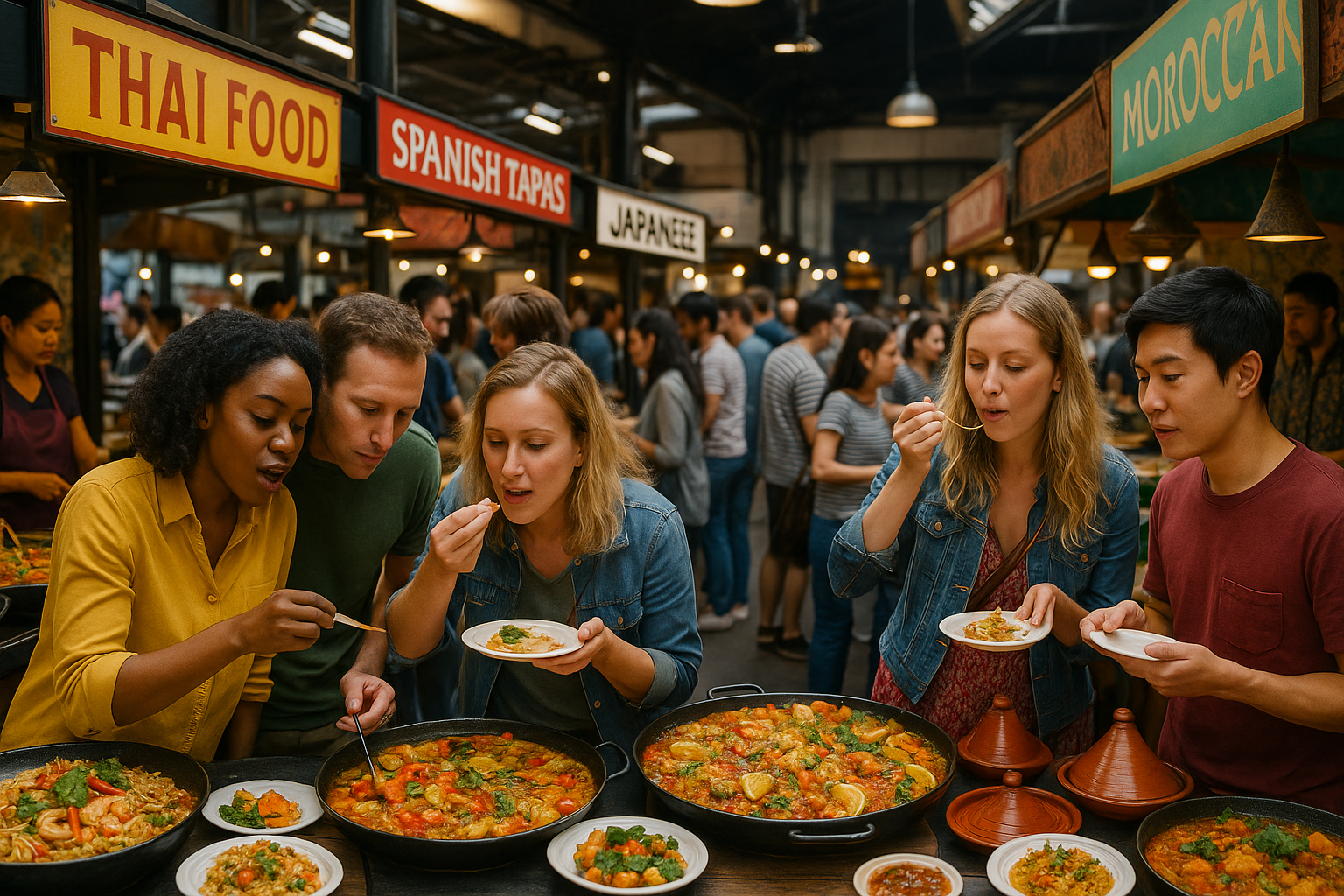Skyrocket Culinary Tourism Marketing Expertise Overnight Without Effort
If you're eager to elevate your culinary tourism marketing expertise without the hassle, explore these options that can transform your approach overnight and position you ahead of the competition.

Understanding Culinary Tourism Marketing
Culinary tourism, a niche yet rapidly growing sector, focuses on travelers seeking unique food and beverage experiences. As a marketer in this field, your goal is to connect these travelers with authentic culinary experiences that highlight local culture and flavors. This burgeoning market is driven by food enthusiasts who prioritize gastronomic experiences when choosing travel destinations. According to the World Food Travel Association, food tourism represents over 25% of the travel market1.
Opportunities to Skyrocket Your Expertise
The potential to enhance your marketing strategy in culinary tourism is vast. By leveraging digital platforms and innovative marketing techniques, you can effectively reach and engage your target audience. For instance, social media channels like Instagram and Facebook are ideal for showcasing visually appealing content that highlights local culinary delights. Engaging with food bloggers and influencers can also amplify your reach, as they often have dedicated followers who trust their recommendations.
Moreover, collaborating with local chefs and restaurants to create exclusive culinary events can draw significant attention. These events not only offer unique experiences but also provide ample content for digital marketing campaigns. With the right strategies in place, you can tap into a market that is expected to grow substantially in the coming years.
Financial Benefits and Cost Considerations
Investing in culinary tourism marketing can yield significant returns. The global culinary tourism market was valued at approximately $1,116 billion in 2019 and is projected to reach $1,796 billion by 20272. This growth indicates a lucrative opportunity for marketers who can effectively capture and retain the interest of food-focused travelers.
However, it's essential to consider the costs associated with marketing efforts. Digital marketing campaigns, influencer partnerships, and event hosting require investment. Yet, with strategic planning and execution, these costs can be managed effectively. For example, utilizing cost-efficient platforms like social media and email marketing can help maximize your budget while reaching a broad audience.
Real-World Examples and Case Studies
Several destinations have successfully leveraged culinary tourism marketing to boost their appeal. For instance, Spain's Basque Country is renowned for its culinary experiences, attracting thousands of food lovers each year. By promoting its rich gastronomic heritage and hosting events like the San Sebastián Gastronomika, the region has positioned itself as a top culinary destination3.
Similarly, Thailand has capitalized on its diverse food culture by launching campaigns that highlight street food tours and cooking classes. These initiatives have not only increased tourist arrivals but have also enhanced the country's global culinary reputation4.
Exploring Further Resources and Opportunities
To truly excel in culinary tourism marketing, continuous learning and adaptation are key. Numerous online courses and workshops are available to deepen your understanding of this sector. Websites like Coursera and Udemy offer specialized courses that can enhance your marketing skills and provide insights into the latest trends5.
Additionally, attending industry conferences and networking events can provide valuable opportunities to connect with other professionals and learn from their experiences. By staying informed and proactive, you can effectively navigate the evolving landscape of culinary tourism marketing.
By exploring the various strategies and resources available, you can swiftly elevate your culinary tourism marketing expertise. Whether through digital marketing, collaborations, or educational opportunities, the potential to thrive in this dynamic industry is immense. Embrace these strategies to not only meet but exceed the expectations of food-loving travelers.